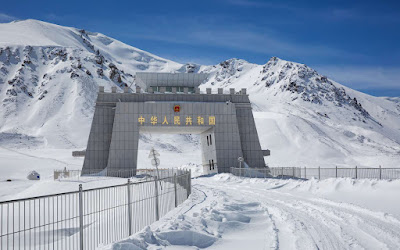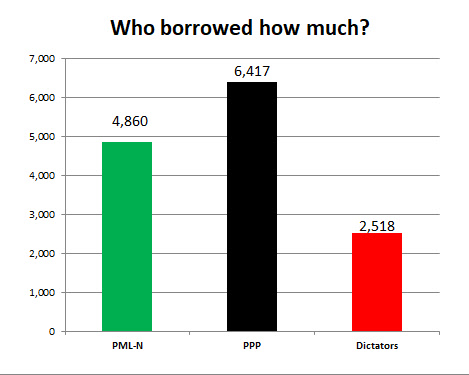You will get a detailed overview of Pakistan-China Relations history, major events and diplomacy in this article. We will explore the diplomatic relations between these two countries, including the significant events and agreements that shaped their bond.
Introduction
Pakistan and China share a unique bond, a bond that has been strengthened by historical, economic, and political ties. Pakistan was one of the first countries to recognize China’s new government in 1949. Since then, both countries have been working to enhance their bilateral relationship. Pakistan and China share a unique bond, one that has been built on historical, economic, and political ties that have spanned several decades. Pakistan was among the first countries to recognize China’s new government in 1949, and since then, both nations have been working together to enhance their bilateral relationship. Today, China is Pakistan’s most significant economic and strategic partner, with a wide range of initiatives and projects to strengthen its ties. This article will explore the rich history of Pakistan-China relations, significant events, and diplomatic efforts that have shaped this important relationship. This article will explore the history, events, and diplomacy of Pakistan-China Relations.
History of Pakistan-China Relations
Since the establishment of diplomatic ties between Pakistan and China in 1951, both countries have enjoyed friendly and cooperative relations. Here is a brief look at the history of Pakistan China Relations:
- The 1950s: The Two countries established diplomatic relations and signed the Treaty of Friendship.
- The 1960s: Pakistan supported China in the Sino-Indian War of 1962. The two countries signed an agreement for the construction of the Karakoram Highway, linking China and Pakistan.
- The 1970s: Pakistan played a vital role in facilitating China’s opening to the West. Pakistan recognized China as a Nuclear Power in 1971.
- The 1980s: Pakistan-China relations grew more robust, and China became Pakistan’s largest arms supplier.
- The 1990s: Both countries signed several economic agreements and worked on joint ventures.
- In the 2000s: China became Pakistan’s largest trading partner, and both countries started collaborating on infrastructure projects.
- The 2010s: China’s Belt and Road Initiative (BRI) significantly impacted Pakistan-China relations, with China investing billions of dollars in infrastructure projects in Pakistan.
Major Events in Pakistan-China Relations
Several events have shaped Pakistan-China’s diplomatic relations, here are a few significant ones:
- 1962: Sino-Indian War: Pakistan supported China in the war against India, which helped strengthen the bond between the two countries.
- 1971: Recognition of China as a Nuclear Power: Pakistan recognized China as a Nuclear Power, which was a significant diplomatic move.
- 1978: Visit of Chinese Leader Deng Xiaoping: The visit of the Chinese leader to Pakistan was a milestone event in Pakistan-China’s diplomatic relationship.
- 1998: Nuclear Tests: Pakistan conducted nuclear tests, and China was the first country to condemn international sanctions against Pakistan.
- 2015: China-Pakistan Economic Corridor (CPEC): The CPEC is a multi-billion dollar project that aims to build infrastructure in Pakistan, including roads, railways, and ports.
Diplomacy in Pakistan-China Relations
Diplomacy has played a vital role in Pakistan-China’s relationship. Here are a few significant agreements and collaborations between the two countries:
- Treaty of Friendship (1951): This was the first-ever agreement signed between Pakistan and China, establishing diplomatic ties.
- Karakoram Highway (1966): The construction of the Karakoram Highway strengthened the economic bond between the two countries.
- Defense Collaboration (1972): China became Pakistan’s largest arms supplier, providing the country with military hardware and technology.
- Economic Collaboration (1989): Both countries signed several agreements for economic cooperation and joint ventures.
- Strategic Dialogue (2011): Pakistan and China started a strategic dialogue to enhance their bilateral relationship.
China-Pakistan Economic Corridor (CPEC)
The China-Pakistan Economic Corridor (CPEC) is a significant project that has the potential to transform the economic landscape of Pakistan. The project is a part of China’s ambitious Belt and Road Initiative (BRI), which aims to improve connectivity and economic cooperation between countries in Asia, Europe, and Africa. CPEC aims to build a network of infrastructure in Pakistan that includes highways, railways, pipelines, and power plants. The project is expected to provide employment opportunities, boost trade, and attract foreign investment to Pakistan. The Chinese government has pledged to invest over $60 billion in the project, making it one of the largest infrastructure projects in the world.
The CPEC route will connect the Chinese province of Xinjiang with the Pakistani port of Gwadar, located on the Arabian Sea. The project includes the construction of a network of highways that will connect Gwadar to the Chinese border, as well as the upgrading of the existing Karakoram Highway. The project also includes the construction of a railway line that will connect Kashgar in China to Gwadar, as well as the development of energy projects and a fibre-optic network.
CPEC is expected to have a significant impact on Pakistan’s economy by creating employment opportunities, improving infrastructure, and attracting foreign investment. The project is also expected to boost trade between Pakistan and China, as well as with other countries in the region. The Gwadar port is expected to become a major hub for shipping in the region, providing a new route for Chinese goods to reach the Middle East, Europe, and Africa.
However, the project has also faced criticism and concerns. Some critics have raised concerns about the environmental impact of the project, as well as the risk of debt traps for Pakistan. There are also security concerns around the project, particularly in the restive Balochistan province where Gwadar is located.
Despite these concerns, the Chinese government and the Pakistani government remain committed to the project. CPEC is seen as a key component of the strategic partnership between China and Pakistan, and both countries are committed to ensuring the success of the project. The future of the project will depend on the success of its implementation and the ability of both countries to address the challenges that arise during the project’s development.
Impact of CPEC on Pakistan’s Economy
The China-Pakistan Economic Corridor (CPEC) is expected to bring significant economic benefits to Pakistan. The project aims to create a network of infrastructure that will provide employment opportunities, improve transportation and energy infrastructure, and attract foreign investment to the country.
One of the major economic benefits of CPEC is job creation. The project is expected to create millions of new jobs in Pakistan, particularly in the construction and manufacturing sectors. This will help to address Pakistan’s high unemployment rate, which currently stands at over 6%.
CPEC is also expected to boost trade between China and Pakistan, as well as with other countries in the region. The Gwadar port, which is being developed as part of the project, is expected to become a central hub for shipping in the region. This will provide a new route for Chinese goods to reach the Middle East, Europe, and Africa, and will also enable Pakistan to become a major player in regional trade.
Another significant impact of CPEC is the improvement of infrastructure in Pakistan. The project aims to build highways, railways, pipelines, and power plants, which will help to address Pakistan’s infrastructure deficit. The project is expected to improve transportation and energy infrastructure, which will make it easier and cheaper for businesses to transport goods and services, and will help to reduce the cost of doing business in Pakistan.
CPEC is also expected to attract foreign investment to Pakistan. The project has already attracted investment from several Chinese companies, and more companies from other countries will likely be interested in investing in Pakistan once the project is completed. This will help to diversify Pakistan’s economy and create new business opportunities in the country.
However, the success of CPEC will depend on several factors. One of the biggest challenges will be addressing security concerns in the region, particularly in the restive Balochistan province where Gwadar is located. There are also concerns about the environmental impact of the project, as well as the risk of debt traps for Pakistan.
In conclusion, the China-Pakistan Economic Corridor has the potential to transform Pakistan’s economy by providing employment opportunities, improving infrastructure, and attracting foreign investment. However, the success of the project will depend on addressing the challenges that arise during its development, and ensuring that the benefits of the project are shared across Pakistan’s economy.
Here are some of the important impacts of CPEC on Pakistan’s economy:
- Job Creation: CPEC is expected to create millions of new jobs in Pakistan, particularly in the construction and manufacturing sectors.
- Trade Boost: CPEC is expected to boost trade between China and Pakistan, as well as with other countries in the region.
- Improvement of Infrastructure: CPEC aims to build highways, railways, pipelines, and power plants, which will help to address Pakistan’s infrastructure deficit.
- Attract Foreign Investment: CPEC is expected to attract foreign investment to Pakistan, diversifying the economy and creating new business opportunities.
- Economic Growth: CPEC is expected to contribute significantly to Pakistan’s economic growth, with estimates of an increase in the country’s GDP by 2-2.5% per year.
- Energy Security: CPEC includes plans to build several new power plants in Pakistan, which will help to address the country’s chronic energy shortage and improve energy security.
- Development of Gwadar Port: CPEC includes plans to develop the Gwadar Port, which is expected to become a central hub for shipping in the region, providing a new route for Chinese goods to reach the Middle East, Europe, and Africa.
- Regional Connectivity: CPEC aims to improve regional connectivity, linking Pakistan with China and other countries in the region, and promoting economic integration and development.
Overall, CPEC is expected to have a significant and transformative impact on Pakistan’s economy, addressing longstanding challenges and creating new opportunities for growth and development.
The Gains for China in the China-Pakistan Economic Corridor (CPEC)
here are some of the gains China has received through the China-Pakistan Economic Corridor (CPEC):
- Economic opportunities: CPEC provides China with new opportunities for investment and trade with Pakistan, as well as with other countries in the region. The development of infrastructure in Pakistan creates new markets for Chinese goods and services, which boosts China’s economy.
- Strategic significance: The project gives China a strategic foothold in South Asia, as it provides an alternative route to access the Middle East and Africa, bypassing the Malacca Strait. This route reduces China’s dependence on the sea route, which is vulnerable to blockades and disruptions.
- Energy security: CPEC has allowed China to secure a stable supply of energy resources by providing a safe and reliable route for oil and gas imports from the Middle East.
- Job creation: The project has generated jobs for Chinese workers who are involved in the construction and operation of CPEC projects in Pakistan.
- Political influence: Through its involvement in CPEC, China has been able to build closer political ties with Pakistan, which is a significant country in South Asia. This influence is expected to grow as the project continues to expand.
Criticisms of CPEC
While the China-Pakistan Economic Corridor has been lauded for its potential to boost Pakistan’s economy, the project has also faced criticism from some quarters. There are a few criticisms of the China-Pakistan Economic Corridor (CPEC) that have been raised by various stakeholders. Some of the main criticisms are:
- Dependence on China: Critics argue that CPEC will increase Pakistan’s dependence on China and may result in an unequal relationship, with China having too much influence over Pakistan’s economic and political affairs.
- Debt Burden: Some analysts have raised concerns about the potential for CPEC to add to Pakistan’s debt burden, as the project is primarily financed through loans from Chinese banks.
- Lack of Transparency: There have been concerns about the lack of transparency in the planning and implementation of CPEC projects, with some critics arguing that the Pakistani government has not been sufficiently transparent about the terms of the loans and the details of the projects.
- Environmental Concerns: The construction of infrastructure for CPEC, such as highways, railways, and power plants, has raised environmental concerns, including damage to wildlife habitats and the potential for air and water pollution.
- Displacement of Local Communities: Some projects under CPEC have resulted in the displacement of local communities, which has led to protests and social unrest.
- Uneven Regional Development: Critics argue that CPEC has primarily focused on the development of Punjab and Sindh provinces, neglecting other regions of Pakistan and potentially exacerbating existing inequalities.
While these criticisms are significant, it is important to note that the Pakistani government and Chinese authorities have taken steps to address some of these concerns. For example, the Pakistani government has established a CPEC Authority to improve coordination and oversight of the project, and there have been efforts to involve local communities in the planning and implementation of CPEC projects.
Security Concerns around CPEC
There are concerns about the security of the China-Pakistan Economic Corridor, particularly in light of ongoing conflicts in the region. Security concerns have been a major issue surrounding the China-Pakistan Economic Corridor (CPEC) project, due to the ongoing conflicts and security challenges in the region. The project passes through areas that are affected by political instability, terrorism, and ethnic conflicts, which pose a threat to the safety and security of CPEC projects and personnel.
Some of the main security concerns related to CPEC are:
- Terrorism: There are concerns about the potential for terrorist attacks on CPEC projects and personnel, particularly by groups such as the Tehreek-e-Taliban Pakistan (TTP) and Baloch separatists.
- Ethnic Conflicts: The construction of CPEC infrastructure has raised concerns among ethnic Baloch communities, who have protested against what they see as the marginalization of their region and the exploitation of their resources.
- Political Instability: The region through which CPEC passes, including Balochistan and Khyber Pakhtunkhwa provinces, has experienced political instability and conflict for many years, which could pose a threat to the security of CPEC projects.
- Cybersecurity: As CPEC projects involve the use of digital technologies, there are concerns about the potential for cyber attacks on the project’s infrastructure and networks.
To address these security concerns, the Pakistani government has taken several measures, such as increasing security personnel in the region, establishing a special security division to protect CPEC projects, and setting up a hotline between Pakistani and Chinese authorities to share information on security threats. Despite these measures, security concerns remain a challenge for the successful implementation of CPEC projects.
Concerns of America, England, and Europe about CPEC
Some concerns of America, England, and Europe about CPEC include:
- Strategic implications: There are concerns that CPEC could have strategic implications for the region, particularly in terms of China’s growing influence and presence in South Asia. This has raised concerns among Western powers about the potential for geopolitical tensions and a shift in the balance of power in the region.
- Debt sustainability: There are concerns that Pakistan’s large-scale borrowing from China to finance CPEC projects could lead to debt distress and potentially compromise Pakistan’s financial stability. This has raised concerns among Western financial institutions and policymakers.
- Human rights issues: There are concerns about the potential for human rights abuses related to CPEC projects, particularly about land acquisition and resettlement of local communities. Some Western countries have raised these concerns with the Pakistani government and called for greater transparency and accountability.
- Environmental concerns: There are concerns about the potential environmental impact of CPEC projects, particularly about the development of coal-based power plants and associated emissions. This has raised concerns among Western countries about the potential impact of global climate change.
- Security concerns: There are concerns about the potential security risks associated with CPEC, particularly about the protection of infrastructure and the potential for terrorist attacks. This has raised concerns among Western countries about the potential for instability in the region.
Imran Khan’s Efforts to Improve Governance and Tackle Corruption
Imran Khan’s government made efforts to improve governance and tackle corruption in the China-Pakistan Economic Corridor (CPEC) project. Some of the key efforts are:
- Establishment of a Joint Working Group: Imran Khan’s government has established a Joint Working Group on Industrial Cooperation between Pakistan and China. The group is responsible for ensuring transparency and accountability in CPEC projects, as well as for resolving any issues related to the implementation of the projects.
- Launch of a CPEC Business Portal: In 2019, the government launched a CPEC Business Portal to provide information on investment opportunities in the CPEC project. The portal also provides a platform for companies to report any issues or grievances they face in their CPEC-related projects.
- Appointment of an Auditor General: In 2020, the government appointed an Auditor General to oversee the financial aspects of CPEC projects. The Auditor General is responsible for ensuring that funds allocated for CPEC projects are being utilized appropriately and transparently.
- Scrutiny of CPEC Projects: Imran Khan’s government scrutinized several CPEC projects that were initiated by the previous government, and has cancelled some of these projects due to concerns over transparency and cost.
- Introduction of a Grievance Redressal Mechanism: The government introduced a Grievance Redressal Mechanism to address any grievances that arise during the implementation of CPEC projects. This mechanism allows companies to report any issues they face and provides a platform for resolving these issues.
These efforts show that Imran Khan’s government was committed to improving governance and transparency in the CPEC project, and to addressing concerns over corruption and lack of transparency. However, some critics argue that more needed to be done to ensure that the CPEC project benefits the people of Pakistan and that the government needed to do more to address concerns over corruption and lack of transparency in the project.
China’s Support for Imran Khan’s Government
China has expressed its support for Imran Khan’s government and its efforts to combat corruption and improve governance in Pakistan. China has expressed its support for Imran Khan’s government and its efforts to combat corruption and improve governance in Pakistan. Some of how China has supported Imran Khan’s government are:
- Continued Support for the CPEC Project: China has continued to support the China-Pakistan Economic Corridor project, which is a flagship project of its Belt and Road Initiative. China has invested billions of dollars in the project and has continued to provide technical and financial assistance to the Pakistani government.
- Diplomatic Support: China has provided diplomatic support to Imran Khan’s government by backing Pakistan’s stance on the Kashmir issue and by supporting Pakistan’s efforts to counter terrorism and extremism.
- Investment in Pakistan: China has increased its investment in Pakistan in recent years, with Chinese companies investing in various sectors of the Pakistani economy, including energy, infrastructure, and telecommunications. This investment has helped to create jobs and stimulate economic growth in Pakistan.
- Training and Capacity Building: China has provided training and capacity-building programs to Pakistani officials and government employees, which has helped to improve governance and strengthen the capacity of the Pakistani government.
- Military Cooperation: China and Pakistan have a close military relationship, and China has provided military assistance and training to the Pakistani military. China has also supported Pakistan’s efforts to counter terrorism and extremism.
These efforts show that China was committed to supporting Imran Khan’s government and its efforts to combat corruption and improve governance in Pakistan. However, some critics argue that China’s support for the CPEC project and its increasing influence in Pakistan could pose a risk to Pakistan’s sovereignty and independence.
COVID-19 Pandemic and China-Pakistan Relations
The COVID-19 pandemic has had a significant impact on China-Pakistan relations, with both countries working together to contain the spread of the virus and provide assistance to affected communities. The COVID-19 pandemic has had a significant impact on China-Pakistan relations, with both countries working together to contain the spread of the virus and provide assistance to affected communities. Some of how the pandemic has impacted China-Pakistan relations are:
- Mutual Assistance: When the pandemic first hit Pakistan, China provided much-needed medical assistance, including personal protective equipment (PPE), ventilators, and other medical supplies. Pakistan, in turn, provided aid to China during the early stages of the pandemic.
- Collaboration in Vaccine Development: China has been working with Pakistan on vaccine development and clinical trials. Pakistan has been participating in clinical trials of several Chinese vaccines and has also approved the emergency use of some of these vaccines.
- Impact on CPEC: The pandemic has had an impact on the China-Pakistan Economic Corridor (CPEC) project, with some delays and disruptions to ongoing projects. However, both countries have reaffirmed their commitment to the project and have taken steps to ensure its continuity.
- Diplomatic Cooperation: China and Pakistan have continued to work together on various diplomatic initiatives, including on issues related to the pandemic. The two countries have also continued to collaborate on regional issues, including the situation in Afghanistan.
Overall, the COVID-19 pandemic has strengthened the relationship between China and Pakistan, with both countries working together to overcome the challenges posed by the pandemic. The pandemic has also highlighted the importance of international cooperation in addressing global health crises, and China and Pakistan have played an important role in this regard.
Future of China-Pakistan Relations
The future of China-Pakistan relations is likely to be shaped by a range of factors, including economic developments, security concerns, and political changes in both countries. The future of China-Pakistan relations is likely to be shaped by a range of factors, including economic developments, security concerns, and political changes in both countries. Some of the key factors that could shape the future of China-Pakistan relations are:
- Continued Collaboration on the CPEC Project: The China-Pakistan Economic Corridor is a key component of China-Pakistan relations, and its successful completion is likely to be a major factor in the strength of the relationship going forward. Both countries have expressed their commitment to the project and are likely to continue to collaborate on its development.
- Enhanced Security Cooperation: Given the security concerns surrounding the CPEC project and other regional issues, security cooperation is likely to be a key area of collaboration between China and Pakistan in the future. This could include enhanced intelligence sharing, joint military exercises, and other forms of collaboration.
- Expansion of Economic Ties: China is Pakistan’s largest trading partner, and the two countries are likely to continue to expand their economic ties in the future. This could include increased investment in critical sectors such as energy, infrastructure, and agriculture, as well as expanded trade and investment in other areas.
- Regional Collaboration: China and Pakistan are both key players in the region, and both countries are likely to continue to collaborate on regional issues. This could include cooperation on issues related to Afghanistan, as well as on broader regional issues such as economic development and security.
- Political Changes: The future of China-Pakistan relations could also be influenced by political changes in both countries. For example, changes in leadership in China or Pakistan could have an impact on the nature of the relationship between the two countries.
Overall, the future of China-Pakistan relations is likely to be shaped by a range of factors, and it is difficult to predict with certainty what the relationship will look like in the years to come. However, given the strong historical ties between the two countries and the strategic importance of the relationship, it is likely that China and Pakistan will continue to collaborate closely in the future.
Conclusion
In conclusion, the relationship between China and Pakistan is an important one that has the potential to shape the future of the region. While there are challenges and criticisms, both countries are committed to strengthening their ties and working together for mutual benefit.
Here are some important points for the conclusion of the article:
- The China-Pakistan Economic Corridor is a flagship project of China’s Belt and Road Initiative that aims to create economic development in Pakistan by linking China’s western region to the Pakistani port of Gwadar.
- CPEC has the potential to significantly boost Pakistan’s economy by providing employment opportunities, improving infrastructure, and attracting foreign investment.
- While the project has faced criticisms regarding security concerns, the Chinese leadership has expressed its commitment to ensuring the safety of the project and its workers.
- Imran Khan’s government took steps to improve governance and tackle corruption in Pakistan, including within the CPEC project.
- China has expressed its support for Imran Khan’s government and its efforts to combat corruption and improve governance in Pakistan.
- The COVID-19 pandemic has brought both countries closer, with China assisting Pakistan to contain the spread of the virus and mitigate its impact on the economy.
- The future of China-Pakistan relations is likely to be shaped by a range of factors, including economic developments, security concerns, and political changes in both countries.
- Despite challenges, the relationship between China and Pakistan remains an important one, and both countries are committed to working together for mutual benefit.
Overall, the relationship between China and Pakistan is complex and multifaceted, with both countries having much to gain from continued cooperation and collaboration. While there are challenges and criticisms, it is important to recognize the potential benefits of this important strategic partnership.










